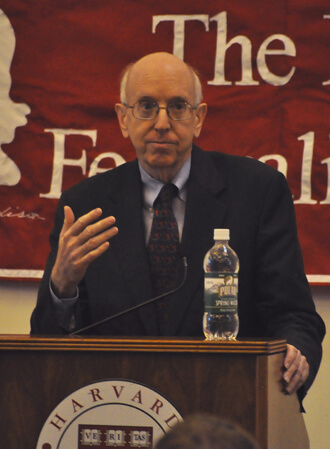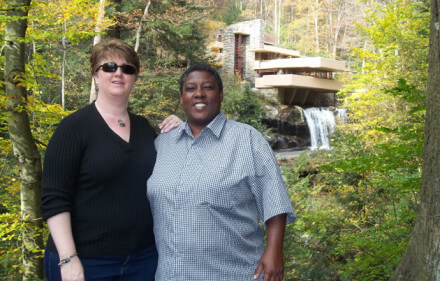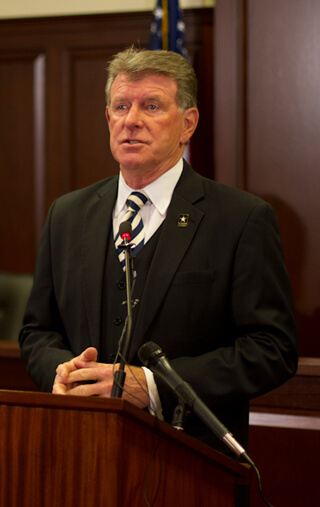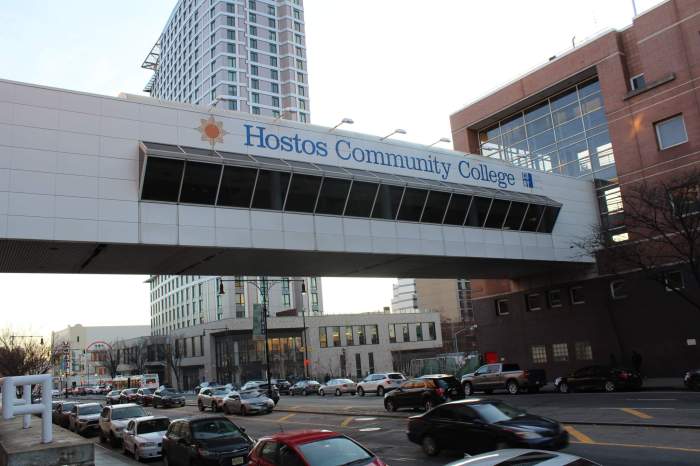City Council Speaker Melissa Mark-Viverito quickly denounced the ruling against marriage equality in Puerto Rico. | DONNA ACETO
BY ARTHUR S. LEONARD | A federal district judge has rejected a marriage equality lawsuit Lambda Legal brought on behalf of same-sex couples in Puerto Rico.
In an October 21 ruling, Judge Juan M. Pérez-Giménez ruled he was bound by a 2012 precedent from the First Circuit Court of Appeals –– under whose jurisdiction federal courts in Puerto Rico fall –– which found that a 1972 Supreme Court decision, rejecting a marriage equality suit in Minnesota because of the lack of a “substantial federal question,” was still binding law.
Ironically, the First Circuit came to that conclusion in a ruling that struck down the federal Defense of Marriage Act. Since the Supreme Court decided that issue in June of last year, nearly all the federal judges who have taken up the question concluded that high court ruling supersedes the 1972 precedent.
Pérez-Giménez, in contrast, found that last year’s ruling in Edie Windsor’s challenge to DOMA had no effect on the binding precedent from 1972.
Given the grounds for his ruling, it was not necessary for Pérez-Giménez to decide the plaintiffs’ constitutional claims, but his opinion makes clear he believes Puerto Rico appropriately has authority over its marriage laws.
Lambda Legal promptly announced it would appeal this “aberrant” ruling to the First Circuit.
Throughout the recent blizzard of marriage equality litigation, states defending gay marriage bans usually cited the 1972 Supreme Court precedent as grounds for dismissing those cases. In state after state, however, federal courts have cited Justice Antonin Scalia’s dissents on DOMA and in the 2003 Texas sodomy case, where he asserted the reasoning of the majority would support claims for a right to same-sex marriage under the 14th Amendment. In his DOMA dissent, in fact, Scalia paraphrased a portion of the majority opinion to show how a lower court could write such a decision by channeling its reasoning.
All four circuit courts of appeals that recently delivered marriage equality victories –– in Virginia, Indiana, Wisconsin, Oklahoma, Utah, Idaho, and Nevada –– ruled that the 1972 Minnesota case was no longer a controlling precedent. The Supreme Court has denied review in those cases, and while those are not findings on the merits, the high court declining to step in has widely been interpreted as tacit agreement with the lower courts’ dismissal of the 1972 precedent. If a majority of the justices believed otherwise, they could instead have summarily reversed all of those marriage victories.
Having established the 42-year-old precedent as the basis for his ruling, Pérez-Giménez proceeded to offer his thoughts on the underlying merits he already announced he would not be deciding.
“Recent affirmances of same-gender marriage seem to suffer from a peculiar inability to recall the principles embodied in existing marriage law,” he wrote. Quoting from Supreme Court Justice Samuel Alito’s dissent in the DOMA case, Pérez-Giménez asserted that traditional marriage is “exclusively an opposite-sex institution… inextricably linked to procreation and biological kinship.” He went on to write, “Traditional marriage is the fundamental unit of the political order. And ultimately the very survival of the political order depends upon the procreative potential embodied in traditional marriage.”
The judge’s ruling took no account of the children being raised by same-sex couples, whose rights to equal treatment proved central to the Seventh and Ninth Circuit’s recent pro-marriage equality decisions.
Perez-Gimenez’s commentary on recent pro-marriage equality decisions took on a caustic tone when he wrote, “In their ingenuity and imagination they have constructed a seemingly comprehensive legal structure for this new form of marriage. And yet what is lacking and unaccounted for remains: are laws barring polygamy, or, say the marriage of fathers and daughters, now of doubtful validity?… It would seem so, if we follow the plaintiffs’ logic, that the fundamental right to marriage is based on ‘the constitutional liberty to select the partner of one’s choice.’”
Marriage law, Pérez-Giménez asserted, is the responsibility of the legislature and the voters, not the courts.
Lambda Legal’s appeal will present the First Circuit with an unanticipated opportunity to weigh in on the same-sex marriage debate, since all of the states under its jurisdiction –– Maine, New Hampshire, Massachusetts, and Rhode Island –– already allow same-sex couples to marry.
Should the First Circuit reaffirm its view from two years ago that the 1972 Minnesota precedent is still binding and uphold Pérez-Giménez’s ruling (an ironic result, indeed, coming from a court based in Boston), that would create the split among the circuit courts of appeals that would likely prompt the Supreme Court to take on the underlying merits of the marriage equality question –– unless, of course, appellate rulings on cases already in the works in the Fifth, Sixth, and 11th Circuits provide an adverse decision. first.
Perez-Jimenez was appointed to the district court by President Jimmy Carter in 1979.
A ruling on marriage in Puerto Rico is of particular interest in New York City, home to so many people born in the island commonwealth. In a statement released shortly after the ruling was announced, Melissa Mark-Viverito, the City Council’s first Puerto Rican speaker, said, “Today’s court decision upholding the ban on marriage equality in Puerto Rico is tremendously disappointing, mean spirited, and an injustice for everyone who believes all people must be treated equally. As a Puerto Rican, I know we are sensible, humane, inclusive, and respectful people. We love our LGBT brothers and sisters and we stand with them in the struggle for equality and justice.”



































